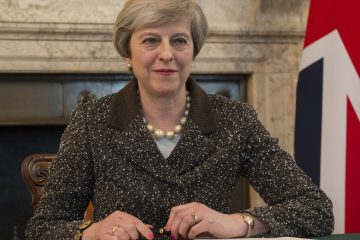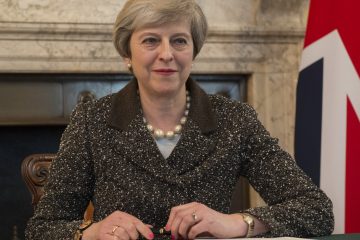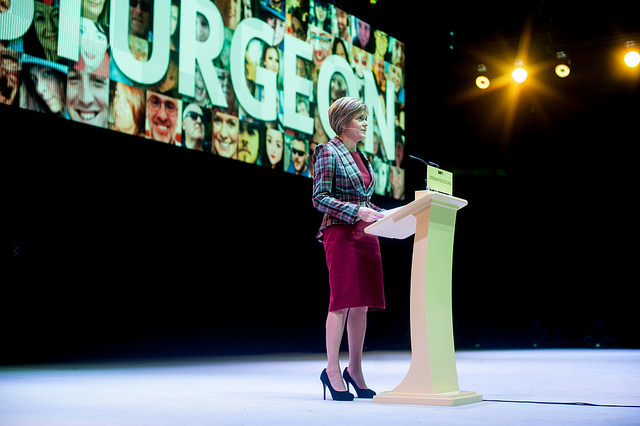
Has the Fixed-term Parliaments Act failed?
On April 19, 2017, parliament voted to endorse the government’s motion to hold a UK general election on 8 June 2017. This was the first time that the provisions of the Fixed-term Parliaments Act (FTPA) were invoked. When the Act was introduced in 2011, the coalition government justified it by arguing that “fixed-term parliaments will have a positive impact on our country’s political system; providing stability, discouraging short-termism, and preventing the manipulation of election dates for political advantage.” Yet, the ease with which Prime Minister Theresa May was able to trigger the early election in light of her 21 point opinion poll lead over Labour over the Easter weekend appeared to cast doubt on its ability to deliver these aims. …

“Strong leadership needed for Brexit negotiations” Will this framing of the early election work for Theresa May?
When Prime Minister Theresa May announced her intention to call a snap election on June 8, she took a political gamble. Two polls over the Easter weekend put the Conservatives 21 points ahead of Labour. Mrs May will be hoping to translate this polling lead into a crushing electoral victory and a personal mandate that will free her from the constraints of working with her current slim majority of just 17. If she succeeds, she would be empowered politically to deal with factions within her own Conservative Party and the opposition. But how are voters likely to respond to this surprise move by the government? Party leaders are currently trying to frame the electorate’s views of it. Mrs May is …

All for English devolution – but what about English democracy?
English devolution has emerged as a prominent feature of the 2015 general election campaign for a number of reasons. One is the ongoing process of devolution that has been taking place across the UK, with the formation of the assemblies for Northern Ireland and Wales, and the Scottish parliament. Another is the aftershock of the 2014 Scottish independence referendum. Throughout this time, England has also solidified as a distinct national political community.
Research indicates that over the past decade or so we have witnessed the progressive “Anglicisation” of the Westminster-based unionist parties. This means that Labour, the Conservatives, and the Liberal Democrats have all become more focused on England, in their political outlook.
But up until now, these parties have sought to avoid the complications and risks of large-scale internal organisational reform in England. They have lacked the appropriate party structures, leadership or explicit policy agendas to properly engage with the complex set of “English Questions”, which have emerged in a post-devolution UK.

Will a constitutional convention refound the British state?
If we are in a constitutional moment, it is time that ‘We the people’ have a right to settle what happens. A Constitutional Convention (CC) is one way to give the people this leading role. A CC is unlikely to refound the British state if it is set up to function as, in effect, an advisory council to the UK Parliament on a relatively narrow range of issues. The UK is in what the lawyer and political philosopher Bruce Ackerman would call a ‘constitutional moment’. There are, obviously, deep and urgent questions about the future of the Union and ‘devolution’. There are related questions about the second chamber of Parliament and the election itself is likely to raise again questions over the voting system. …

The general election and constitutional reform: A look at the manifestos
One of the central problems with studying the politics of constitutional change in the UK is that the public does not care about the constitution. Unsurprisingly, constitutional reform does not figure prominently in the party manifestos for the May general election. That does not mean that these documents tell us nothing at all: they show that parties stick with their old policies; that the Conservatives seem to avoid any explicit reference to the constitution; and that all political parties appear to be willing to use the constitution to their own advantage.
In this blog post, I distil some of the constitutional issues in the party manifestos of the three largest parties in Westminster in the last parliament: the Conservatives, Labour and the Liberal Democrats (if there’s time, I will do another post on the smaller parties’ proposals). I define ‘constitutional’ issues as distinct from ‘distributional’ ones, which involve reallocation of resources (and the regulation of behaviour). Constitutional issues are about how decisions are made, not about the outcomes themselves, and should be neutral between, say, more or less progressive (or conservative) substantive policies.

Forecasting the 2015 British general election: three weeks out
Forecasters, academic experts, journalists, pollsters and the betting markets have long been forecasting a seriously hung parliament with both major parties not only short of the 326 seats required for an overall majority but even forecast to get less than 300 seats. Meanwhile, an SNP landslide is expected in Scotland which would be hugely damaging for Labour and have major implications for the government formation process. If the forecasters and betting markets are right in their central forecasts then Con+LD+DUP combined will be short of a majority and so a Labour led government should form if they can secure the support of the SNP and probably others, including the Liberal Democrats, will be needed too: a potentially messy and unstable situation but also one where there is sufficient similarity in ideological perspective for policy agreement on plenty of issues.
But there is uncertainty associated with all the forecasts and some forecasters are trying to estimate the extent of that uncertainty, which in turn can be used to calculate probabilities of particular events (hung parliament, largest party, etc.)

The Loser Takes It All – The SNP after the referendum
If a political party were ever lucky enough to find itself in the SNP’s current position in Scotland, but across the entire United Kingdom, it would be heading towards the biggest landslide in British political history. The Nationalists are predicted to win around 45 per cent of the Scottish vote, giving them between 71 and 91 per cent of Scotland’s MPs.
The SNP offer candidates in only 9 per cent of Westminster constituencies yet are currently the British political party most certain of playing a role in the formation of the next government. The party’s current success comes against a backdrop of winning only 6 MPs in 2010, having as little popularity as the widely-loathed Scottish Conservatives as recently as 2013 and, in September of last year, leading a losing referendum campaign that forced a change in party leadership.
However, it is the referendum question that is now benefiting the SNP. The referendum campaign greatly increased support for independence, which is highly correlated with SNP voting in the General Election, as well as further dividing the Scottish party system, which was already split by attitudes towards independence. The closeness of the campaign has not extinguished hope amongst ‘yes’ voting Scots that independence remains a realistic possibility. Indeed, supporters of the SNP have become ever more fervent in their partisanship since September’s referendum.









